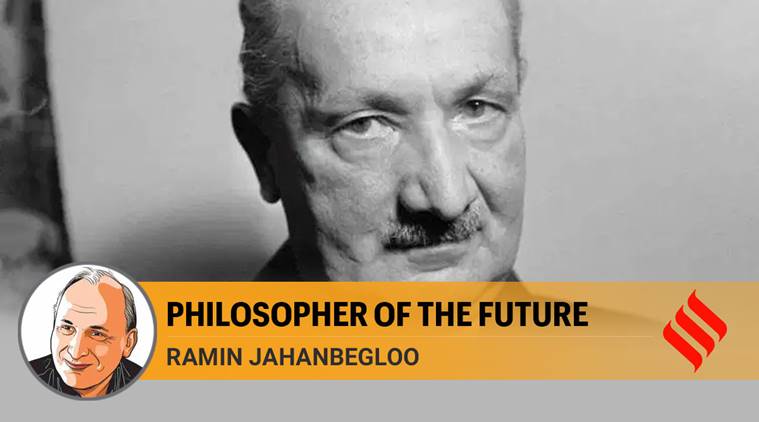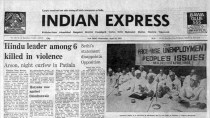- India
- International
In Good Faith: Though controversial, Martin Heidegger offers clues to understanding modernity
His best known work, Being and Time (Sein und Zeit), although notoriously difficult and complex, is generally considered to be the most important philosophical work of the 20th century.
 Martin Heidegger
Martin Heidegger
September 26 marks the 130th birth anniversary of the German philosopher Martin Heidegger. More than 40 years after his death, the influence of Heidegger’s work on different fields of thought is overwhelming. He is not only the most influential influential philosopher of modernity but also its most controversial thinker. His best known work, Being and Time (Sein und Zeit), although notoriously difficult and complex, is generally considered to be the most important philosophical work of the 20th century. Heidegger is hailed today by many as a groundbreaking thinker whose work in ontology and metaphysics determined the course of 20th century philosophy and exerted a seminal influence on the development of contemporary thought including theology, architectural theory, psychology, literary criticism, cognitive science and political theory.
Heidegger has attracted most attention worldwide in the past 30 years. Part of this has also to do with the controversy around his politics and his Nazi connections in the 1930s, when he was the rector of the University of Freiburg. Heidegger’s post-war silence about the Holocaust and his evasive interview with Der Spiegel in 1966, published posthumously, added to what is known today as the “Heidegger Affair”. But it was Victor Farias’s Heidegger and Nazism that unleashed a series of articles, special issues of journals and books on Heidegger. Many of Heidegger’s critics tried to establish a link between the ontological foundations of Being and Time and Heidegger’s membership of the Nazi party.
All this criticism came down to one notorious phrase by Heidegger where he equated the phenomenon of concentration camp with the practice of mechanised agriculture and the nuclear threat. According to Heidegger, “Agriculture is today a motorised food industry, in essence the same as the manufacture of corpses in gas chambers and extermination camps, the same as the blockade and starvation of countries, the same as the manufacture of atomic bombs.” What is shocking in Heidegger’s observation is his fundamental incapacity for moral discernment. As George Steiner writes, “Like so many other intellectuals, Heidegger was manifestly caught up in the brutal, festive inebriation which swept across Germany after some 15 years of national humiliation and despair. As we know from the Spiegel interview, he was preparing a peculiarly mendacious posthumous apologia for his own role in the 19302 and 40s. But the thinker of being found nothing to say of the Holocaust and the death-camps”. Heidegger’s silence on Auschwitz was the sign of a terrible truth which was never articulated by him in his phenomenology of the existential. As pointed out by many philosophers, including Paul Ricoeur and Emmanuel Levinas, Heidegger’s ontology overlooks or ignores the ethical relation between dasein (the state of being) and the other. We can also point to Hannah Arendt’s analysis of Heidegger as a fundamentally un-political philosopher, one whose post-rectorial career was marked by total withdrawal from the public space.
Many of us might not consider Heidegger as an ethical person, but his philosophy continues to have the spiritual power of helping us raise questions about the destiny of humanity and the world. Some interpreters still regard him as a prophet who can show us a way out of modernity’s dilemmas.
Generations to come might not spend more time that than our contemporaries to savour the full body of Heidegger’s writings, but they will certainly continue to relate to his mode of thinking through other fields of knowledge. This could even be easier when the missionary period of Heidegger studies is over. Heidegger offered us a way of thinking about fundamental human concerns that makes it difficult to pigeonhole him. To understand how thoughts come to us is, as Heidegger says, is to learn to think of every other instance of living. Thus we can say, with Heidegger, that the only thing essential to thinking is thinking. If there is some truth to this claim, then the philosophy of Heidegger will belong to our future.

(This article first appeared in the print edition on September 23, 2019 under the title ‘Philospher of the future’. The writer is professor-vice dean, Jindal Global University
40 Years Ago
EXPRESS OPINION
More Explained
Apr 18: Latest News
- 01
- 02
- 03
- 04
- 05









































